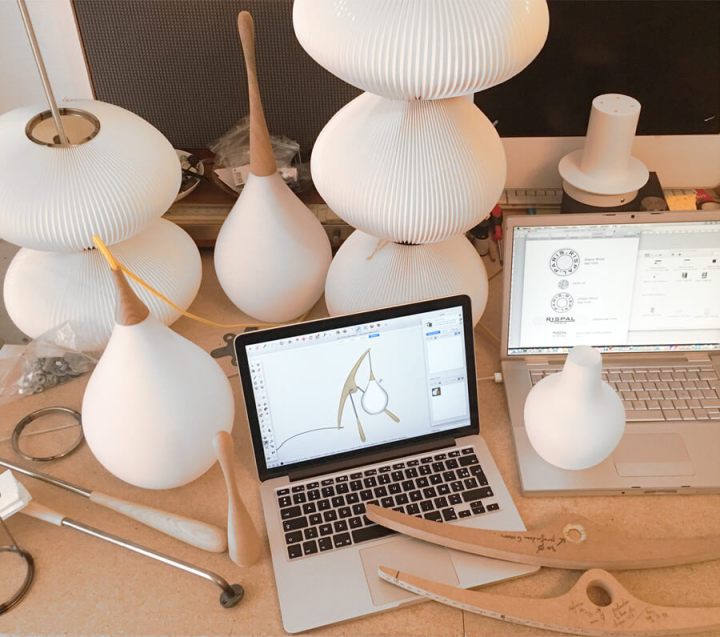The Georges Léon Rispal mystery
What do we know about the creator of Rispal?
Georges-Louis Rispal was the son of wine merchants. Born in Paris in 1901, he founded his lighting company in 1924 in the 11th arrondissement of the French capital, Paris, at 172 rue de Charonne.

His activity ceases in 1982 and is taken over by two passionate people from the world of Design and Architecture.
From classicism to avant-gardism
The Rispal productions were extremely varied and rather classic in style.
However, at the beginning of the 1950s, a particularly avant-garde catalog made its appearance. Its name: "Formes Nouvelles" (New Forms). It includes models largely inspired by Scandinavian design but also, it is said, by the artist Jean Arp.

The "New Forms" catalog also allowed architects and decorators to compose their own creations. A vast choice of elements - opalines, lampshades, wooden pieces, legs - were offered individually and could be combined according to the desires of each person.


Icon and fiction
If there is one model that alone represents Rispal's avant-gardism, it is unquestionably the "praying mantis". A name that was given over time by antique dealers and decorators. In reality, Rispal products did not have names but references.

The "praying mantis" is very often attributed to a certain Jean Rispal. This is pure fiction, the Rispal luminaries being designed by a style office integrated within the company.
Renaissance
Douglas Mont, lighting designer for more than 20 years, collector of Rispal lamps, a true enthusiast, wished to revive these emblematic creations of the golden age of French furniture. Five years of research, encounters and experimentation later convinced him to revive this historic brand.

Challenge
Without any plans, manufacturing documents or tools, reissuing these lamps was almost an impossible task. Proof of this is that the production technique for the cellulose acetate lampshades of the Praying Mantis, emblematic of the brand, had to be entirely reinvented.

Commitments
RISPAL creations are entirely made in France. Their partners have been rigorously selected for the quality of their work and their respect for the environment. Most of them have received the EPV label (Entreprise du Patrimoine Vivant).

For ecological reasons, RISPAL decided to ban the use of exotic woods used at the time such as teak or mahogany.
These woods have been replaced by ash, walnut and oak from sustainably managed forests.









You must be logged in to post a comment.